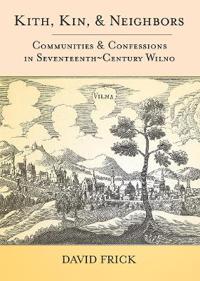Kith, Kin, and Neighbors (Inbunden)
avDavid A. Frick
ISBN: 9780801451287 - UTGIVEN: 2013-05In the mid-seventeenth century, Wilno (Vilnius), the second capital of the Polish-Lithuanian Commonwealth, was home to Poles, Lithuanians, Germans, Ruthenians, Jews, and Tatars, who worshiped in Catholic, Uniate, Orthodox, Calvinist, and Lutheran churches, one synagogue, and one mosque. Visitors reg[...]



